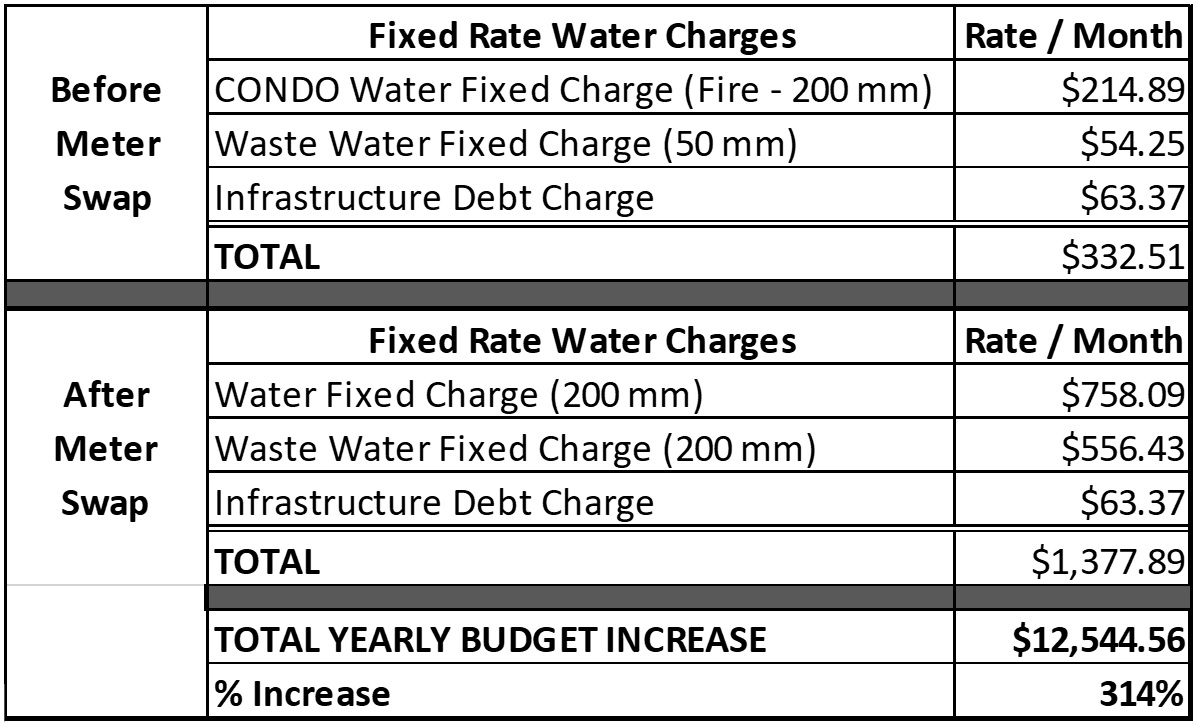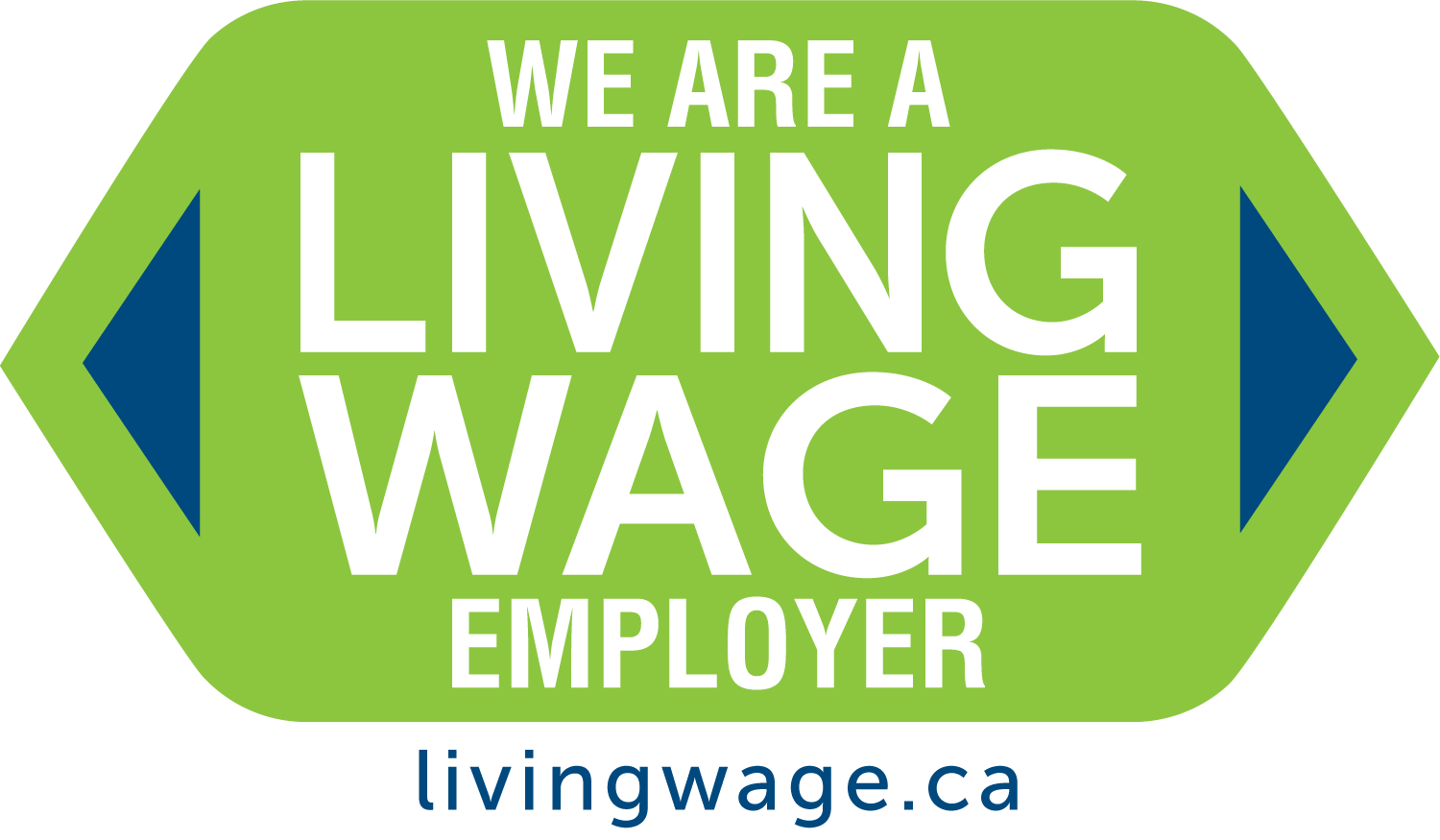10 year old Condominiums in the City of Cambridge may need to prepare for a 300% Water Cost Increase

Condominiums in the City of Cambridge that are older than 10 years, need to assess their exposure to a 300% Water Cost Increase that may occur when their property line water meters are replaced.
Clean Cut Energy’s engineering team works with local condominiums to help them identify and resolve utility issues they may encounter. In the Summer of 2020, we were contacted by a client who notified us that their Condominium experienced a significant and unexpected fixed water cost increase. This increase was applied to their water account with no notice from the City. We reviewed copies of the new invoices and we can confirm that the water cost increase shown below is correct.

The Size of the water rate increase may vary based on the size of the meter replaced
An in-depth investigation by our office found that a seemingly insignificant change made by City Council in 2012 is now having significant financial consequences for some existing Condominiums in the City of Cambridge.
In 2012 the City of Cambridge made the following policy change:
“That the alternative billing structure for Fireline Meters effective January 1, 2012 previously approved on Dec 5, 2011 be replaced with:
- Fixed service charges for all Fireline meters be limited to the water fixed service charge for the Fire meter and the sewer fixed charge for the Domestic water meter at the corresponding meter size rate respectively, and
- The fixed service charge for the Fireline meters servicing Condominium Corporations and Non-Profit Community Housing Facilities be based on the 2009 rate structure plus historic and ongoing annual increases at the corresponding meter size rate respectively, and 3. The alternative billing structure be applicable only to existing development in place prior to February 1, 2010 and only until such time that the Fireline meter is removed and replaced with a new meter which is not a Fireline meter.”
To summarize the above text, the city historically has provided Condominiums with a special rate for their fireline water meters (which typically only see water use during an actual fire). Most new Condominiums (newer than 10 years) are likely already charged at the current commercial rate based on their water meter size. But many older Condos had a grandfathered rate that will expire when their fireline water meter is replaced. The size of the increase will depend on the size of the water meter installed in your property.
Clean Cut Energy is now working with a number of Condominium Corporations in the City that have incurred this significant rate increase after meter replacement. Many more may be subject to this change in the next few years as their water meters reach replacement age.
There are two key criteria that affect how this change may impact your Condominium in the future:
- The Size of your Condominium: Small condominiums in the City are going to feel the impact of this change much more intensely than big condominiums. Water cost increases are spread across less Condominium units in smaller complexes. This makes the impact of a large cost increase much more significant to unit owners in small Condominium Complexes.
- The number of water services that supply water to your property: If your Condominium has two city water services entering your property, you may be subject to this increase for both services. This would double the cost increase applicable to your Condominium.
What can you do? There are two key actions we are recommending Condominiums take to help reduce the effect of this change:
- Assess the potential impact to your Property and plan for it: The first step is figuring out when and how this change is going to affect your property. We can work with your property manager to help you identify and quantify this risk for your property so you can plan for it. There are a number of cost saving measures that may be available to your Condominium and we can help you explore these options.
- Reduce the direct impact of this change: If you have multiple water services to your property, see if you can reduce the number of services down to one. We have had success working with the City to eliminate redundant water services in Condominiums which can reduce the impact of this change. Talk to your property Manager or reach out to us and we can help you work through this process.
Condominiums often set operating budgets that are intended to last for the entire fiscal year. Unexpected cost increase can significantly impact budgets. We hope this information will help affected Condominiums to plan for this increase.






